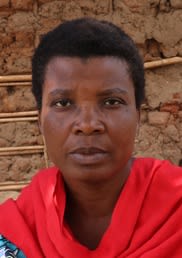When merely existing is a risk: Sexual and gender minorities in conflict, displacement and peacebuilding
This report highlights that, while sexual and gender minority persons often live in precarious conditions in peacetime, these are exacerbated in situations of violent conflict and displacement. Identifying – or being identified by others – as belonging to a sexual and gender minority often adds additional layers of vulnerability, precariousness and danger to lives already under threat.
The report is based on our research conducted in Bosnia and Herzegovina, Colombia, Lebanon and Nepal, as well as a review of secondary literature. It shows that questions of sexual orientation and gender identity that do not fall into the binary categories of women and men or do not adhere to heterosexual norms have been largely absent from gender and peacebuilding research, policy and programming. But, as with other gendered vulnerabilities and power imbalances, pre-existing conditions of discrimination and exclusion are heightened and made more acute in these situations.
Peacebuilding, in its essence, is about building more inclusive and less violent societies, with gender often being one of the most salient factors impacting on social exclusion. It must therefore do a better job at understanding these dynamics and addressing them.






